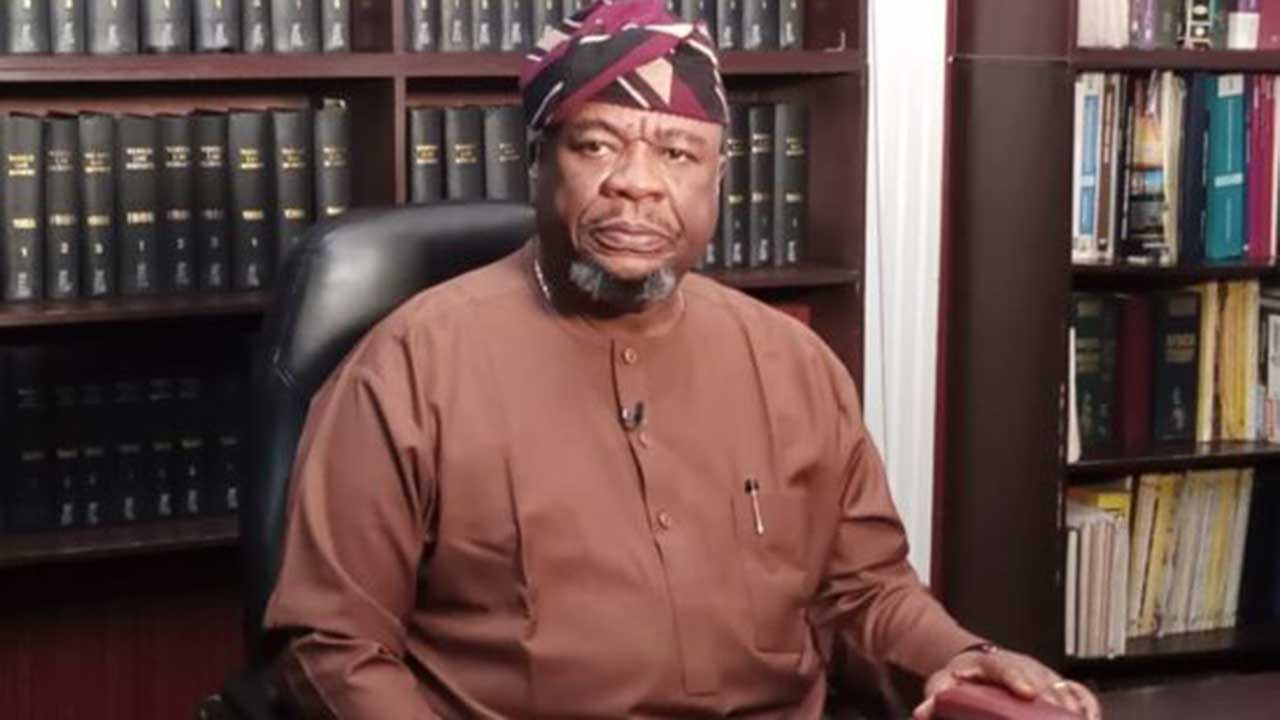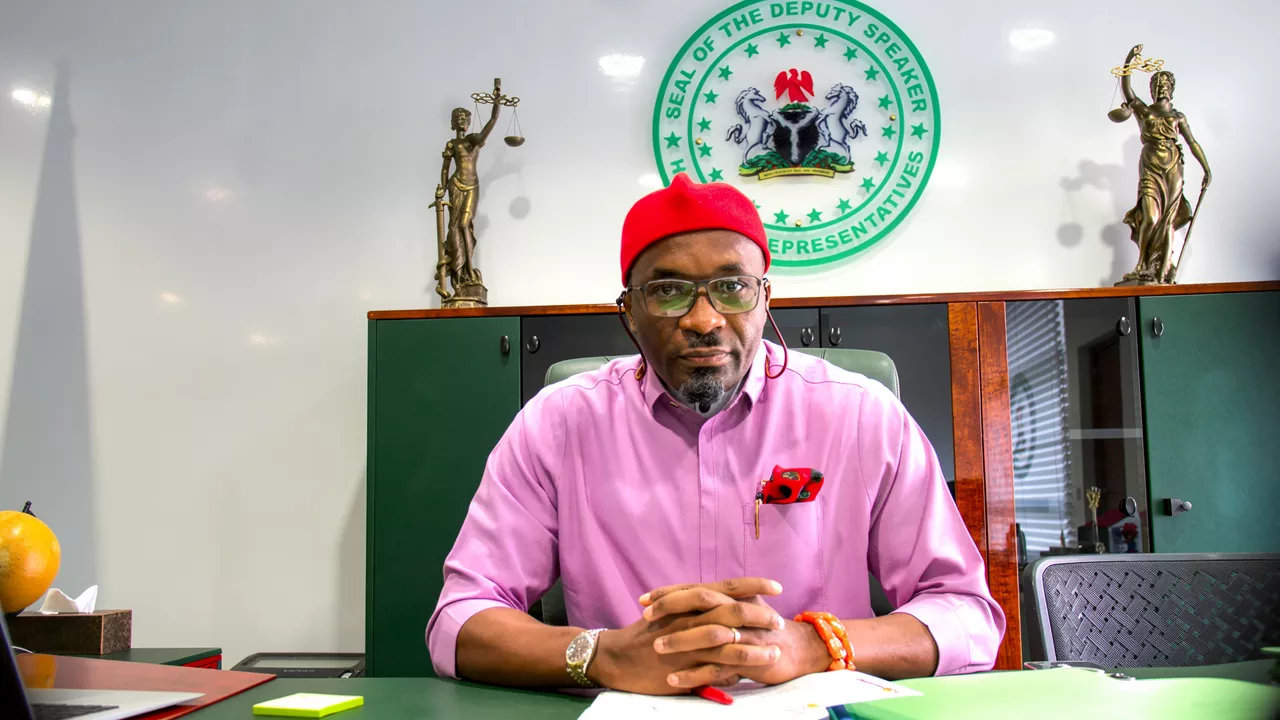
What can you say about the judicial system especially in the face of conflicting judgments emanating from courts of coordinate jurisdictions?
Well, at the beginning, if you look at the calibre of our judges in the pre-independence, after independence, even up till the 1980s and maybe early 90s, we had very sound and cerebral judicial officers. Nigeria exported judges. Our judges like Justice Timothy Aguda, Emmanuel Ayoola and others became Chief Judges and Chief Justices in many countries such as The Gambia, Seychelles, Tanzania, and other places.
The law reports from Nigeria were cited all over the Commonwealth nations. So, when our judges, like Elias, and others, made pronouncements, courts all over the world respected those judges. Now, that foundation, which they laid, has continued to help our judiciary. We still have judges who toil day and night, in not very conducive circumstances to uphold justice. There’s a difference between delivering judgment and not delivering justice. Some judges deliver justice. But the truth must be told, there are few bad eggs and that is what makes the headlines.
On conflicting judgments by courts of coordinate jurisdiction, and the excuse will be, the judge only decided on what was before him. The judge did not know what had happened on the same matter in another court. We have suggested that every decision is uploaded into a system all over the country. So, the moment a matter comes before a judge, he presses a button and the button shows him if the same parties had previously been in another court, and which orders had been made. So, that is one area of looking at it. We can apply technology to solve that problem.
But at the same time, having conflicting judgments is an aberration. It makes the law so uncertain. As a lawyer, I should be able to read a document, read the facts, and predict 99 per cent on how the law will go at this point. I shouldn’t have that problem. But as it is, conflicting judgments are very bad. They only lead to anarchy and chaos. Imagine two different parties; one may have his own judgment in his pocket. Another one may have his own judgment in his pocket. Then, both will go and call the police and chaos will ensue. That is not good for the administration of justice. But like I said, technology can solve it. And where anybody was found wanting, such a person will face discipline.
Some scholars and leaders of thoughts are calling for the decentralisation of the Supreme Court. Is this the way to go and can this help Nigeria’s jurisprudence?
The Supreme Court is a policy court. So, I don’t support a situation where we will have more than one Supreme Court. We should retain the Supreme Court as a policy court. But what I support, and I’m part of a group that has been agitating for this for many years, is that 70 per cent of the cases going to the Apex Court should not go. Cases like divorce matters between husband and wife; land matters and chieftaincy issues should not get to the highest court in the land. What are those issues doing in a Supreme Court? So, once we deal with that, we will find that the pressure on our Supreme Court will drastically reduce.
Unfortunately, we keep on running from pillar to post with the political cases. There was a time the country decided to terminate governorship cases at the Court of Appeal. Later, we said it should be taken all the way to the Supreme Court. I think this is just something that happens with the political class, trying to look for one solution or the other when they are contesting for power. So, I think the Supreme Court is doing too much. It appears that power is concentrated into one office, because I know that’s always the complaint. The Chief Justice of Nigeria (CJN) is the chairman of National Judicial Council (NJC), is the Chief Justice of Nigeria, and all that. So, that is worth looking into.
Former Vice President Atiku Abubakar recently called for rotational presidency and six-year single tenure for the president. Is this suggestion suitable for the country?
We’ll find out that it may be worse than what we are having now. This is because the centre is too attractive. So, if you rotate it, or you dissect it, you are going to end up having a more powerful president. The Nigerian president is about the most powerful president in the world. He can do and undo.
But if the structures are there, one can survive very well without being a friend of the president, the centre is not too attractive and holding on to everything, all this talk about the rotational presidency or not won’t come up.
The younger people, “the Gen Z, and generation alpha,” don’t even want to hear about who is governor or president. Unfortunately, it is because they are beginning to find ways of surviving extremely well. I’m not talking about Internet frauds. I’m talking about those doing legitimate businesses. So, they are not concerned about who is the president, governor or the local government chairman. They come up with products that people want and they get paid. So, we should try to develop a policy and provide a conducive environment whereby we don’t need everybody to be looking for government appointments.
I’m extremely happy with my state, the governor is up-and-doing. But people must keep to their jobs and survive very well and not rely on the government. That’s what is happening to “the Gen-Z.” So, whether it’s rotational or not, it doesn’t change anything as long as there’s too much power in the centre and in the hands of the president.
Speaking about the 2027 governorship contest in Oyo State, Governor Makinde recently said he preferred someone younger to succeed him. Do you align with his idea of somebody younger and below 50 to succeed the governor?
The governor’s comments that he hopes that a younger person will succeed him has removed people like us from the contest. But you see, the governor is not stating that he wants a particular person. Having experienced the seat, I have been close to many governors, it is no longer the job for somebody who just wants to be ceremonial. It’s a hard job. It’s a 24-hour job. So, you need to be very young and fit. If you are old, you have to be extremely fit to do the job, because it’s a hands-on job.
So, if he’s of that opinion, it’s from his experience, that the job is for somebody that is younger and stronger. I’m sure that some of the younger generation will be happy with that, because the governor is looking at their direction to come and work. That will be motivating for the younger ones.
Can you let us know what you have done as the Governor’s Advisory Council chairman in Oyo State in ensuring that people of the state enjoy good governance?
Since we came on board in November, we have had our monthly meetings, if not twice a month. You will not believe the volume of documents that come before us, which we have to attend to. We get petitions on a daily basis. We attend to them and we make recommendations to the governor. Our job is to give advice. Our job is not to implement. We are, however, very gratified, because we now get letters from the same public, commending and appreciating that what they had complained about has been attended to by the government. That’s our reward. I will give you an example, sometime ago, the designer of our national flag, Pa Taiwo Akinkunmi, was interred in Ibadan here. The man died last August.
Some people came from Abuja, promising to give him a state burial. This green, white, green is our symbol. It’s everywhere, the flag of the country. The private jet of the President has green, white, green on it. Now, the man that designed it passed on, and the people from Abuja said they would come, but they didn’t come. For one year, it got to a stage, we received a petition from the family. The family told the advisory council that they needed to bury their father. But the federal government told them not to do so. They gave assurance that the federal government would give him a state burial. The family said they couldn’t wait any longer. So, we told them to wait.
We made a recommendation to the Governor of Oyo State. Notwithstanding that man was from Ogun State and his mother was from Kwara State, he lived here among us in Ibadan. So, it’s also our pride. So, you can see how governance should work. After waiting for one year, we recommended that the national pride should be buried properly. And the government released funds directly to the family and the hero was given a befitting burial. The governor was on leave. The acting governor came and spoke.
It must be stated that if we allow such a great man to go unsung, it affects the future generation of Nigerians. They will read about it. If a man like this could go and nobody even says anything, their sense of patriotism will be diminished.
Also, we get petitions all the time, from teachers, both state teachers, and local governments. We are extremely busy. Our job is to advise, and pass it to the government. How the government implements it is the headache of the government. We, however, thank God that once we send something out, the feedback is always a commendation. So, I think it’s a respected council. The members are very respected and respectable members of the society and they are serious about it.






